Published Mar 14, 2013
Bob Picardo & Bill Nye Chat... With Each Other, Part 1
Bob Picardo & Bill Nye Chat... With Each Other, Part 1
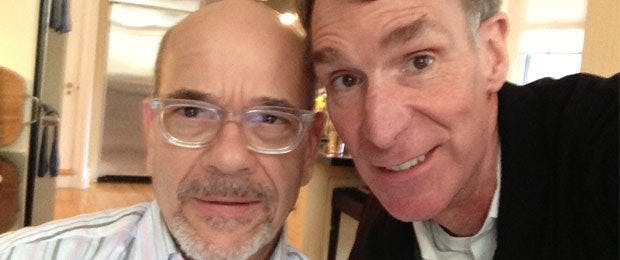
So… what if sci-fi and real science met in the middle? What if a popular genre actor chatted with a respected scientist-educator? What if we got to the point and said we’re talking about Robert Picardo, who so brilliantly played Star Trek: Voyager’s EMH, the Doctor, and Bill Nye, a/k/a Bill Nye, The Science Guy, who’s just plain brilliant? And what if StarTrek.commoderated the occasion, but mostly just hit "rec" on our recording device and let the two men – who happen to be good friends and were enjoying lunch together at Picardo’s house while on the phone with us -- engage in a chat? Well, then you’d have the following exchange, with part one down below and part two to run tomorrow. Oh, and we should note that Picardo and Nye had such a good time doing this that they’ve agreed to an encore in a couple of months and, next time, we’re going to videotape the conversation.Picardo: OK, we’re going to interview each other, kind of. I’ve written some questions, and we can start with that and just wing it. Bill, we’ll alternate questions. And I’d like to start, if that’s all right.Nye: Please, bring it on.
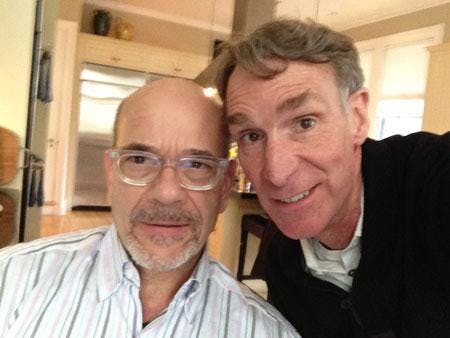
Picardo: Bill, I’ve heard you say that “Everything you need to know about life you can learn from Shakespeare, Star Trek and baseball.” Would you please elaborate?Nye: Well, these are all things that humans do. These are all human interactions. Bob, let me say first of all, that’s quite a reference. That dates back to my high school years, when I was quite enamored with Star Trek. Although I am a mechanical engineer, spent a lot of time with physics, I did get an A in Shakespeare in college.Picardo:
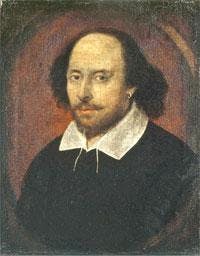
aseball, there’s a pattern, a script, an arc. You have the conflict. What are we g in tribes and all these recent genetic discoveries associated with evolution, it’s still humans, and Shakespeare had the human interaction thing, if I can use the term “thing,” down. He had it down! So, in Star Trek, although these people had this remarkable ability to travel all over the cosmos, and the technology was imagined but not unimaginable -- that is to say it was reasonable science-fiction, except for the part where everybody spoke English. That was pretty heavy. That was a time-saver -- Picardo: The universal translator, Bill!Nye: -- But for all of that in Star Trek, the people still were dealing with the same problems, the same human problems, as Shakespeare. And… baseball, the thing I find so compelling is that it’s a sport where people are constantly running around and in motion, and where, somehow, you can be in the outfield for nine innings and not even have a ball come out to you, and yet you still come home tired. That’s because you still have to run out there every inning. You still have to lean into every pitch, every play. It’s a sport and some of it depends on your ability to hit the ball, but it’s also a game and there’s a strategy. You want this player to move to here and that player to move there. So, with Shakespeare, Star Trek and baseball, there’s a pattern, a script, an arc. You have the conflict. What are we going to do about it? Cut to intermission or to a commercial or call time out. So I guess I got fascinated with all three. OK, Bob, my turn now. Picardo: I’m ready.Nye: Before you came to astonishing fame as the doctor with no name on Voyager, did you have an interest in science fiction?Picardo: You know, I get asked this a lot because of the conventions…Nye: I’m trying to give you softballs, Bob, to soften you up.
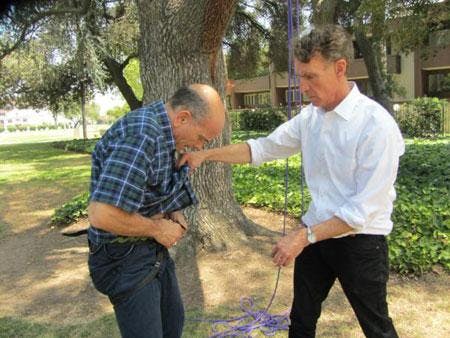
Picardo: Thank you very much. I’m going to be honest and say that I was a fan of other genres, particularly horror, growing up.Nye: That explains why you’ve done a lot of rubber roles…Picardo: Exactly, a lot of roles with prosthetics. I did several horror movies. The first film I was in was The Howling, and I played a werewolf, and that was definitely influenced by the fact that I had a childhood love for all the classic Universal horror movies. So, I was not a big sci-fi fan. In fact, I have confessed in front of many a Star Trek fan that I sadly and tragically was not a fan of the original Star Trek series. I watched Lost in Space entirely, I’m sure, because Angela Cartwright was so cute.Nye: Good reason. But I think you could have gotten every bit as much enjoyment out of Janice Rand, let alone Uhura or Helen Noel. Picardo: Yes, there were some very good reasons to watch The Original Series, and I have come to see that and appreciate that over the years. But you asked if I was a science fiction fan, and my honest answer is no, I wasn’t. I had to become part of the Star Trek franchise in order for me to understand the storytelling from the inside. I then went back and watched the older show.
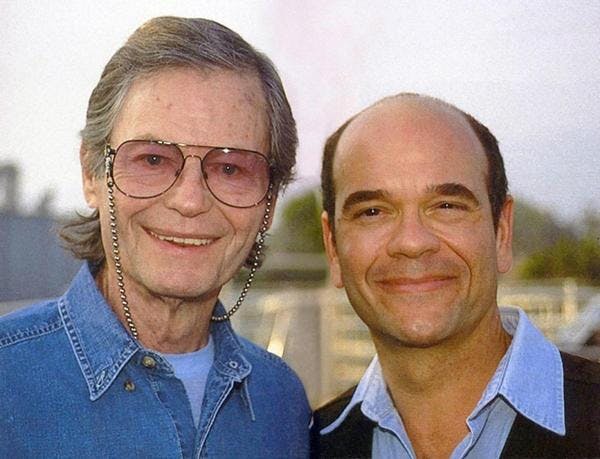
Nye: Wow, I’ve never heard this before. Picardo: I was caught watching an Original Series episode just a couple of weeks ago.Nye: Who caught you?Picardo: Me. I caught myself. Nye: OK, you were not a sci-fi fan, but you were a biology major in college, were you not?Picardo: I was a biology major in my college for my first two years. I ended up switching to theater, but, yes, I had a real passion for biology. I’d actually taken two years of biology in high school, including an advanced class. So I was in the pre-med program at college.
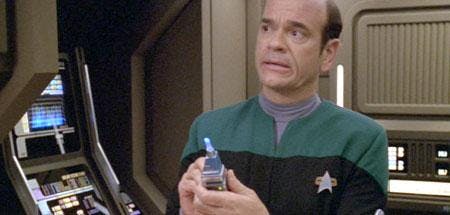
Nye: Did somebody come up to you and say, “Hey, man, you shouldn’t be biology-izing, you should be acting?” What happened?Picardo: Yes, it sort of happened that way. I was in a production at Yale. I’d continued to act for fun while studying biology and taking labs and all of that. I was in a production of Leonard Bernstein’s MASS, which Maestro (as Bernstein was called) came to see, and he was very encouraging to me and asked me what I wanted to do with my life. So he encouraged me to get out of pre-med and into show business. I guess that was the little bit of outside validation I needed to get me to follow something I clearly had a passion for, but wasn’t willing to admit to myself. Bill, my turn again. When did you first fall in love with science?Nye: This question I get asked often and the answer is… I don’t remember. It was certainly before I was four and it may have been before I was three. There were a couple of seminal moments that I think about often. My brother had a Lionel chemistry set, same as the trains… the A.C. Gilbert brand, and he made ammonia in my hand, in the palm of my hand. I thought that was just astonishing. And I remember watching bees, bumblebees. I watched them so long on the azalea bushes in the front yard that I was convinced I saw the same individual bee coming and going. I remember thinking, and I still think, the bumble has a huge freaking body for her tiny little wings. How can she pull this off? By this time in the story I was a paperboy and I delivered the Washington Post, mostly assisting my brother. But I read in Ripley’s Believe It Or Not that “according to aerodynamic theory, bees cannot fly.” Even as a kid I thought, “That’s not a very good theory, man. Bees are really doing very well.” And I just got fascinated with this stuff. Also, my grandfather was an organic chemist, and I was given his glassware to play with, and this was from a time when they blew glass. It was something they had to learn in chemistry class. I thought it was the coolest stuff ever, and I pursued it.
_____________
Visit StarTrek.com again tomorrow to read part two of our exclusive conversation between Robert Picardo and Bill Nye. To follow Nye on Twitter, go to @TheScienceGuy, and go to @RobertPicardo to follow Picardo.

